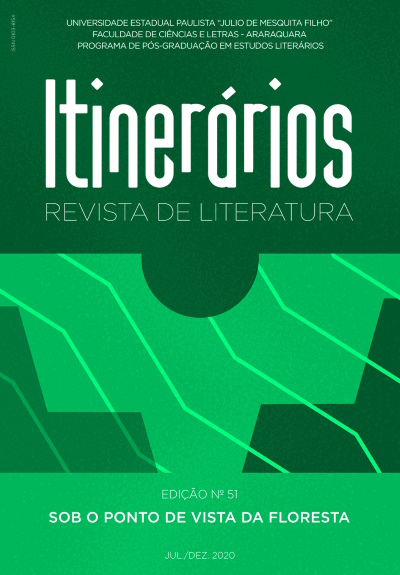Peri in Brocéliande
The desert-forest in José de Alencar's O Guarani
DOI:
https://doi.org/10.58943/irl.vi51.13600Keywords:
Romanticism, Chrétien de Troyes, Novel, Space, NormativityAbstract
This article seeks to articulate the representation of the landscape and its connection with the chapter of the hero in O guarani, by José de Alencar, the masterpiece of Brazilian Romanticism; in other words, it seeks to articulate space and normativity as essential components of narrative. Since Gaston Bachelard, space has been configured as an important instance for fiction, but only from the analysis of Iuri Lotman and Henri Mitterand it will cease to be an accessory, in order to become decisive for the organization of the plot. Lotman coined the notion of frontier, while Mitterand proposed the concept of overcoming frontiers. Both definitions are fundamental to understand the process of constitution of the hero in Alencar´s novel, since Peri will be the only character to move freely through the spaces of the “house” and the “forest”, incorporating values of one and the other. Dialoging with the medieval narratives of Chrétien de Troyes, particularly “Le chevalier au lion” and “Le conte du Graal”, the hero of O guarani breaks, however, with the chivalrous code of honour by adopting treason as a regular procedure. It will be the forest, as the central topos of the medieval imagery (Le Goff), which will provide such a hybrid and ambivalent stature of the hero.
Downloads
Published
Issue
Section
License
Os manuscritos aceitos e publicados são de propriedade da revista Itinerários. É vedada a submissão integral ou parcial do manuscrito a qualquer outro periódico. A responsabilidade do conteúdo dos artigos é exclusiva dos autores. É vedada a tradução para outro idioma sem a autorização escrita do Editor ouvida a Comissão Editorial.

